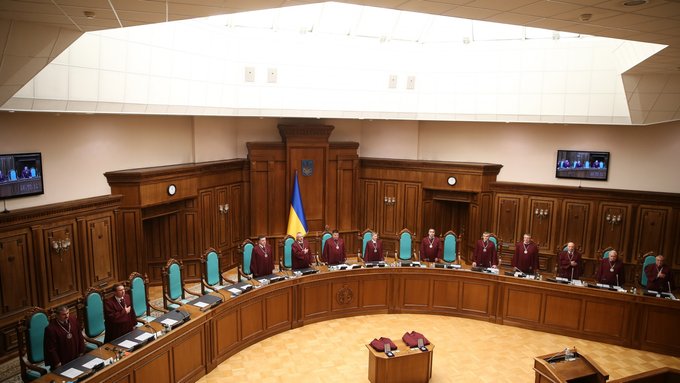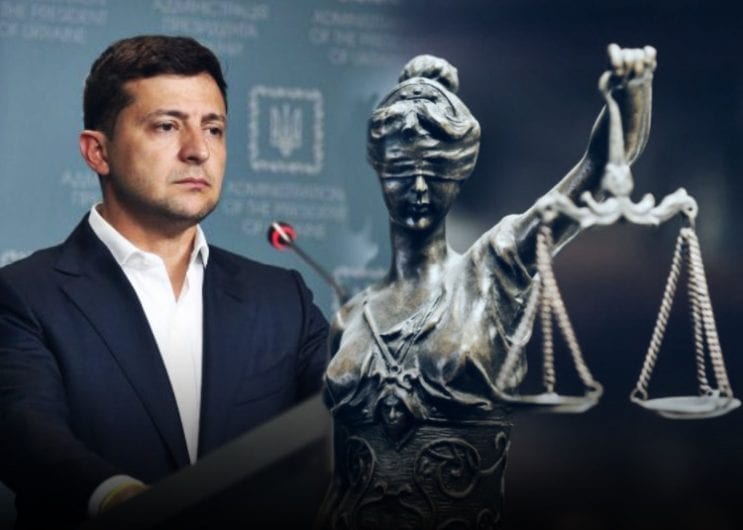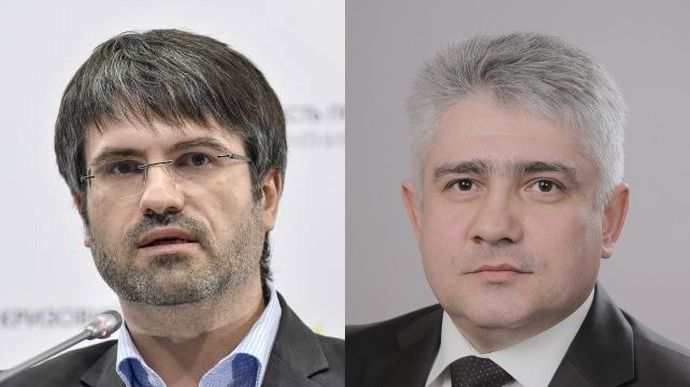Contrary to the conclusion of the Venice Commission, Ukraine's President Volodymyr Zelenskyy has approved a law criticized by judicial activists for undermining the independence of Ukraine's Constitutional Court (CCU).
On 20 December, he signed law Parliament-approved law #7662 about the competition to select candidates for the Constitutional Court. Earlier in the day, the Venice Commission published its conclusion on the draft law, in which it stressed that:
- The Advisory Group of Experts, which will vet candidates for the Constitutional Court, should include an additional seventh member from among international experts. This seventh independent expert will allow counterbalancing political influence on the commission.
- The decisions of the Advisory Group of Experts shall be binding. Under no circumstances can a candidate who has received their negative assessment become a judge of the Constitutional Court.
The draft law adopted by the Verkhovna Rada currently provides for six Advisory Group of Experts members, three of whom are independent experts, and the rest are appointed by the President, Ukraine's Parliament, and the Congress of Judges, and no decision can be made without the vote of the latter.
"This is a clear signal that the [Venice] Commission insists on European values and principles of the rule of law, and no one will give Ukraine a discount because of the war and other circumstances," said
Mykhailo Zhernakov, Chairman of the Board of the DEJURE Foundation.
His organization has called on international partners to not delegate members to the AGE and on Ukrainian MPs to amend the law immediately:
In its current version, the law on the "reform" of the CCU does not take into account the recommendations of the Venice Commission and the calls of civil society. It also threatens democracy and European integration.
The President’s Office already controls five judges of the CCU. Soon three appointments under the Parliament’s quota, where the Servant of the People party has a monomajority, and two appointments under the quota of the Congress of Judges will take place.
If these appointments take place under the adopted and signed law, which does not ensure independent selection, as early as in spring, the political authorities will fully control the Constitutional Court. This is a direct threat to democracy in Ukraine.
The newly adopted law also violates Ukraine's international obligations. The reform of the CCU is #1 among the seven priorities related to obtaining the EU candidate status and opening accession negotiations. The decision of the European Council to grant Ukraine candidate status clearly states that the reform must take place in accordance with the recommendations of the Venice Commission, which the law signed by the President ignores.
The law on Ukraine's Constitutional Court: required for Ukraine's European integration
On June 7, the European Commission recommended granting Ukraine an EU candidate status on the condition that the country will further implement a number of important reforms related, in particular, to the rule of law, oligarchs, corruption, and fundamental rights. At the same time, the French President stressed that if not for the war, Ukraine would not have received this status. On June 23, the EU finally granted Ukraine candidate status.
On November 23, the Venice Commission issued an urgent opinion on the draft law on improving the procedure for selecting candidates for the position of a judge of the Constitutional Court of Ukraine on a competitive basis. The adoption of draft law No. 7662 is one of the seven EU requirements for Ukraine's progress toward the European Union.
On December 13, the Verkhovna Rada adopted draft law No. 7662 as a whole. According to human rights activists, the current version of the document contains risks of usurpation of judicial power.





